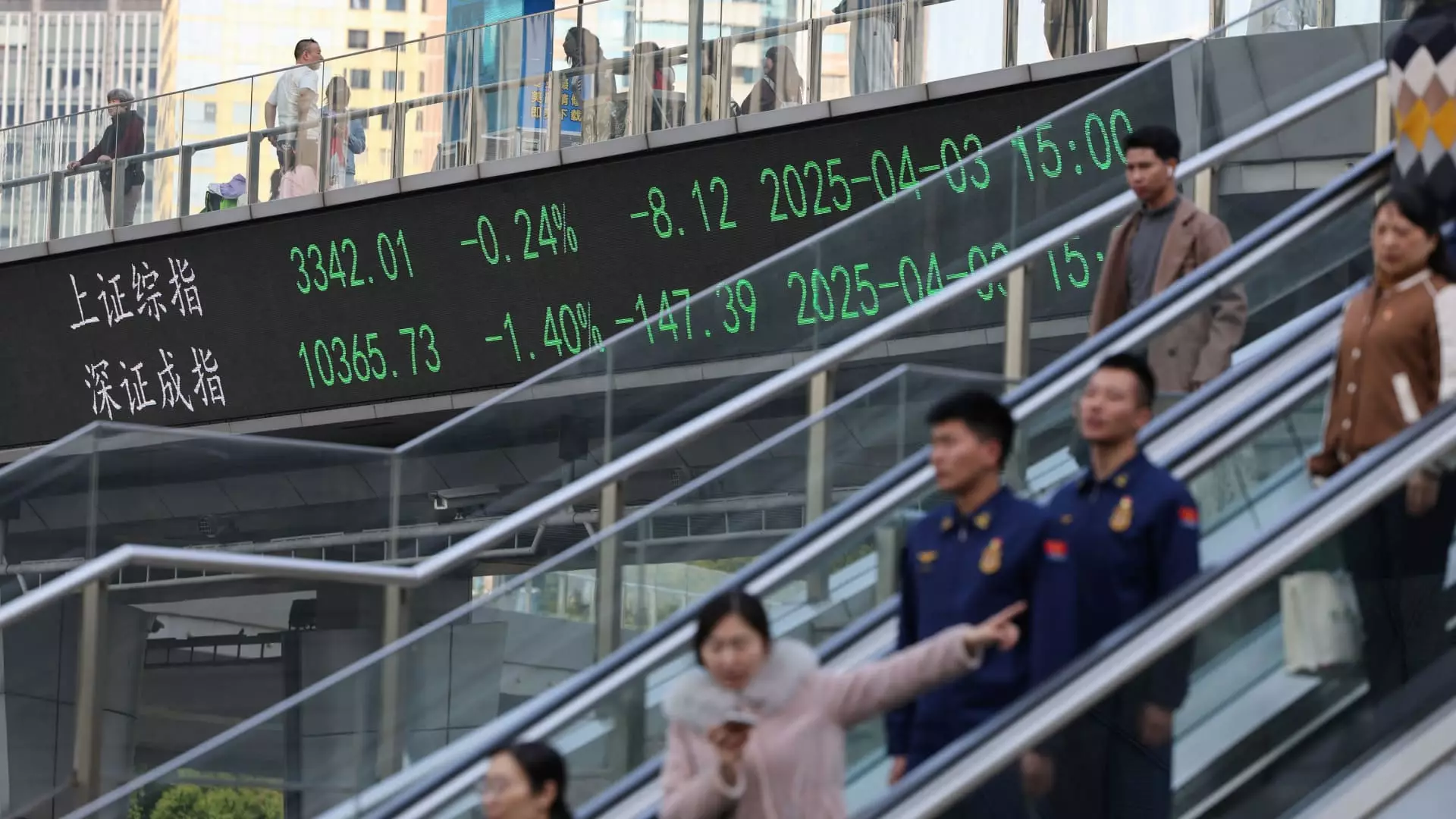In a landscape fraught with uncertainty, China’s technology sector stands as a beacon of resilience, especially in the face of powerful global headwinds like tariffs. With the recent announcement of additional tariffs from the U.S. affecting both China and its Southeast Asian partners, there’s been palpable distress among investors. On one recent trading day, initial market reactions mirrored this unease, with Chinese stocks plummeting at the open. However, as the dust settled, it became evident that many investor fears may have been overblown. Leading analysts are cautiously optimistic, suggesting that the primary players in China’s tech arena possess limited exposure to U.S. markets and can weather the storm thanks to domestic growth drivers.
This sets the stage for a nuanced exploration of how geopolitical tensions could unwittingly fuel homegrown innovations, especially in generative artificial intelligence—a sector where investments continue to surge despite the surrounding controversies.
Resilience of the Chinese Technology Market
Despite immediate market losses, the Chinese tech sector has shown remarkable tenacity. According to Kai Wang, an Asia equity strategist at Morningstar, many established tech companies, as well as most consumer brands, have limited ties to the U.S. market. This lack of dependence has allowed them to recover more swiftly from initial drops in stock prices. Though governmental interventions are anticipated should economic indicators begin to falter, it appears that local policymakers are equipped with the tools to stimulate growth effectively.
Moreover, the valuation metrics paint an optimistic picture. Research from Citi indicates that while the average price-to-earnings ratio of leading Chinese tech companies currently stands at 52% below that of the U.S.’s “Magnificent Seven,” there is ample room for growth as the market corrects itself. Investors are increasingly encouraged to focus on domestic over export-oriented plays and prioritize services over goods, a strategy that could reap dividends amid rising tariff concerns.
Shifting Investor Sentiments
The global investor landscape continues to shift dramatically. Nearly 25% of international investment professionals have renewed their optimism towards Chinese tech solutions, driven by compelling market research and local developments. Notably, the allocation of global emerging markets equity funds towards China reached a 16-month high, signaling robust confidence in homegrown technology initiatives.
Additionally, innovative ventures like the Chinese startup DeepSeek, which claims to have developed an AI model outperforming that of OpenAI’s ChatGPT, exemplify this burgeoning enthusiasm for local ingenuity. This momentum suggests a significant pivot towards internal development, particularly in technologies deemed critical for future growth, such as artificial intelligence.
As companies move towards AI adoption, the promise of reduced operational costs and the supportive fiscal policies suggest a more bullish outlook for those invested in the sector.
Healthcare Resilience Amid Tariffs
Another standout sector that seems impervious to the ramifications of U.S. tariffs is healthcare. Analysts suggest that pharmaceutical companies, being exempt from recent tariffs, may emerge even more robust from heightened economic scrutiny. What’s particularly striking is the collaborative nature of many Chinese biotech firms: most are engaged with U.S. partners and are seen not as traditional exporters susceptible to tariffs. An insightful note from Jefferies highlights that with bipartisan backing for lower drug prices in the U.S., the operational efficiency of firms like Wuxi Biologics positions them well to thrive, regardless of external economic pressures.
With projections indicating accelerated growth by 2025 for Wuxi Biologics, investment analysts recommend a buy rating for this stock, illustrating a clear divergence in market dynamics.
The Broader Economic Impact of Tariffs
While indicators point towards potential growth for specific sectors, it’s essential to acknowledge the wider economic ramifications of ongoing tariff disputes. Analysts caution that even if the tech sector navigates through these turbulent waters, the indirect effects on China’s gross domestic product could be significant. Moreover, market volatility is likely to persist, requiring investors to tread carefully while making strategic choices.
In this evolving economic tapestry, the potential outcomes hinge on more than just market sentiment; they reflect a critical moment for the nation as it balances domestic innovation with the realities of international economic policy. For those aligned with center-right liberal values, this interplay of economic resilience amid external pressures serves as a poignant reminder of the power of strategic domestic investments in fostering long-term growth.

